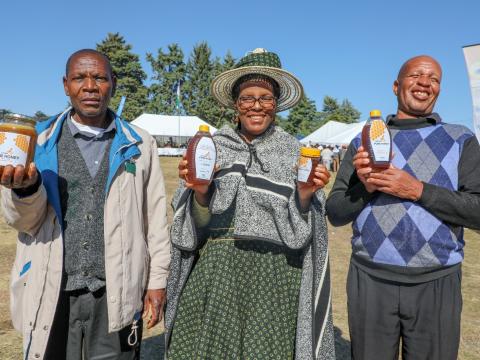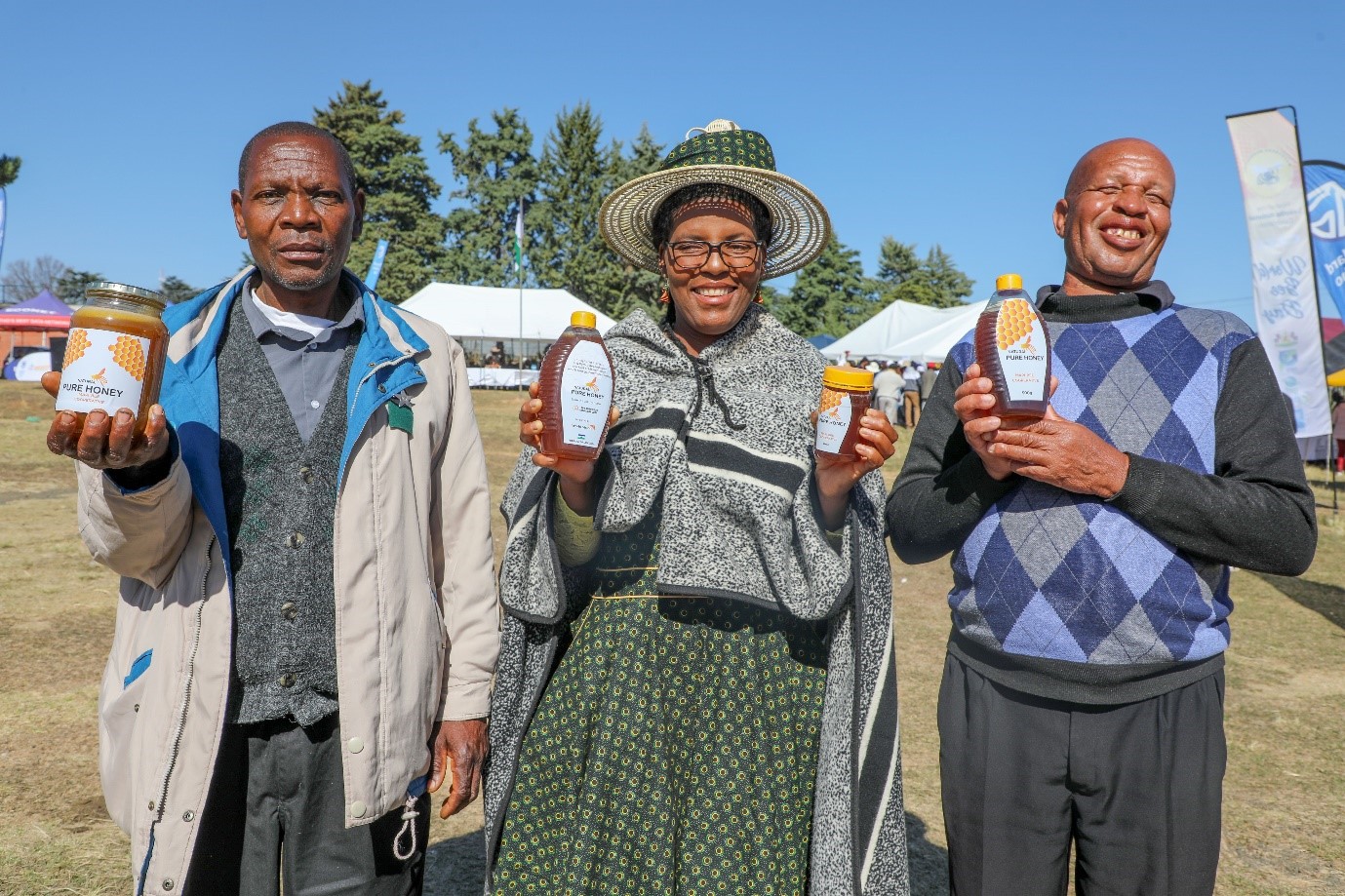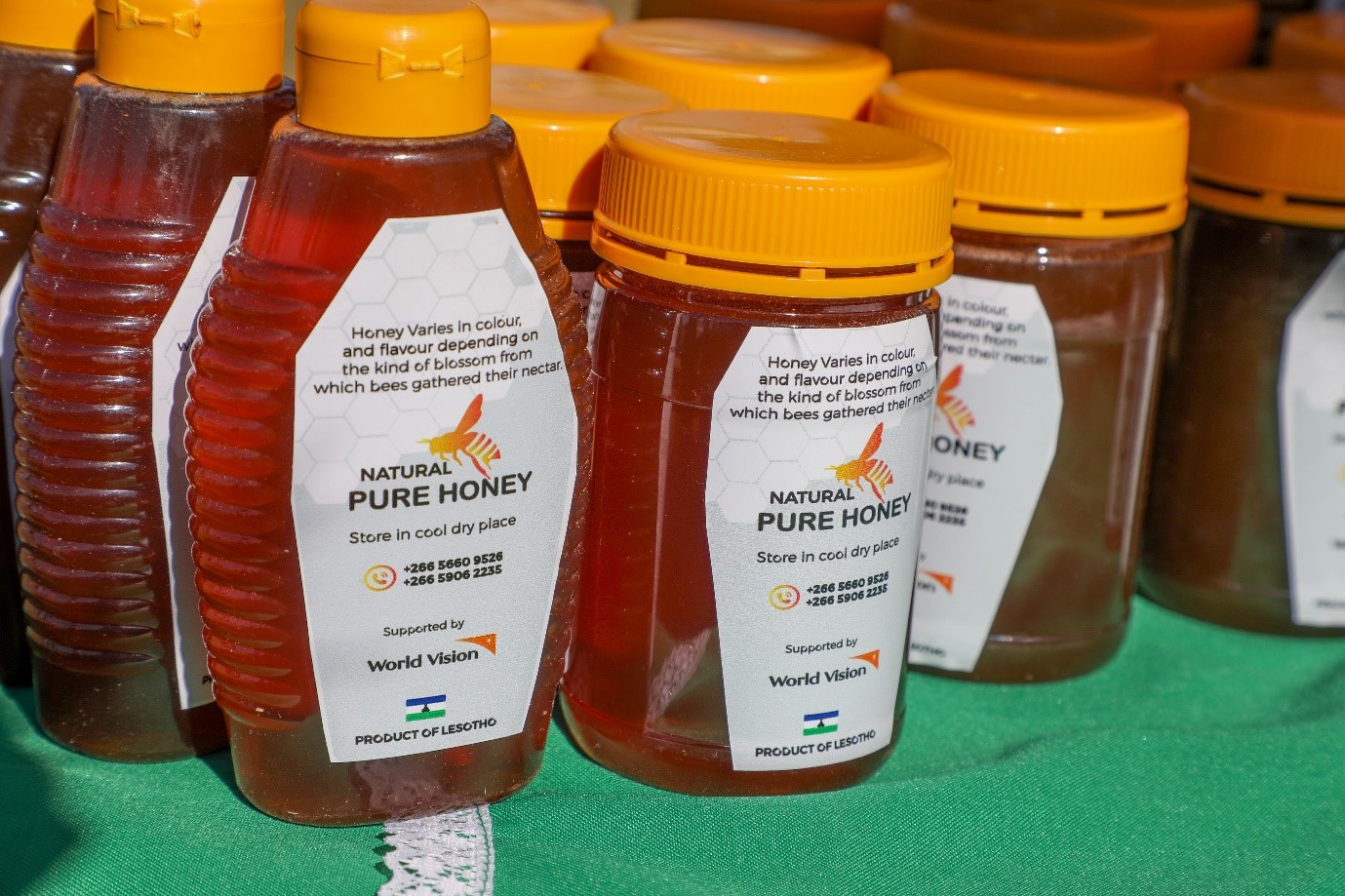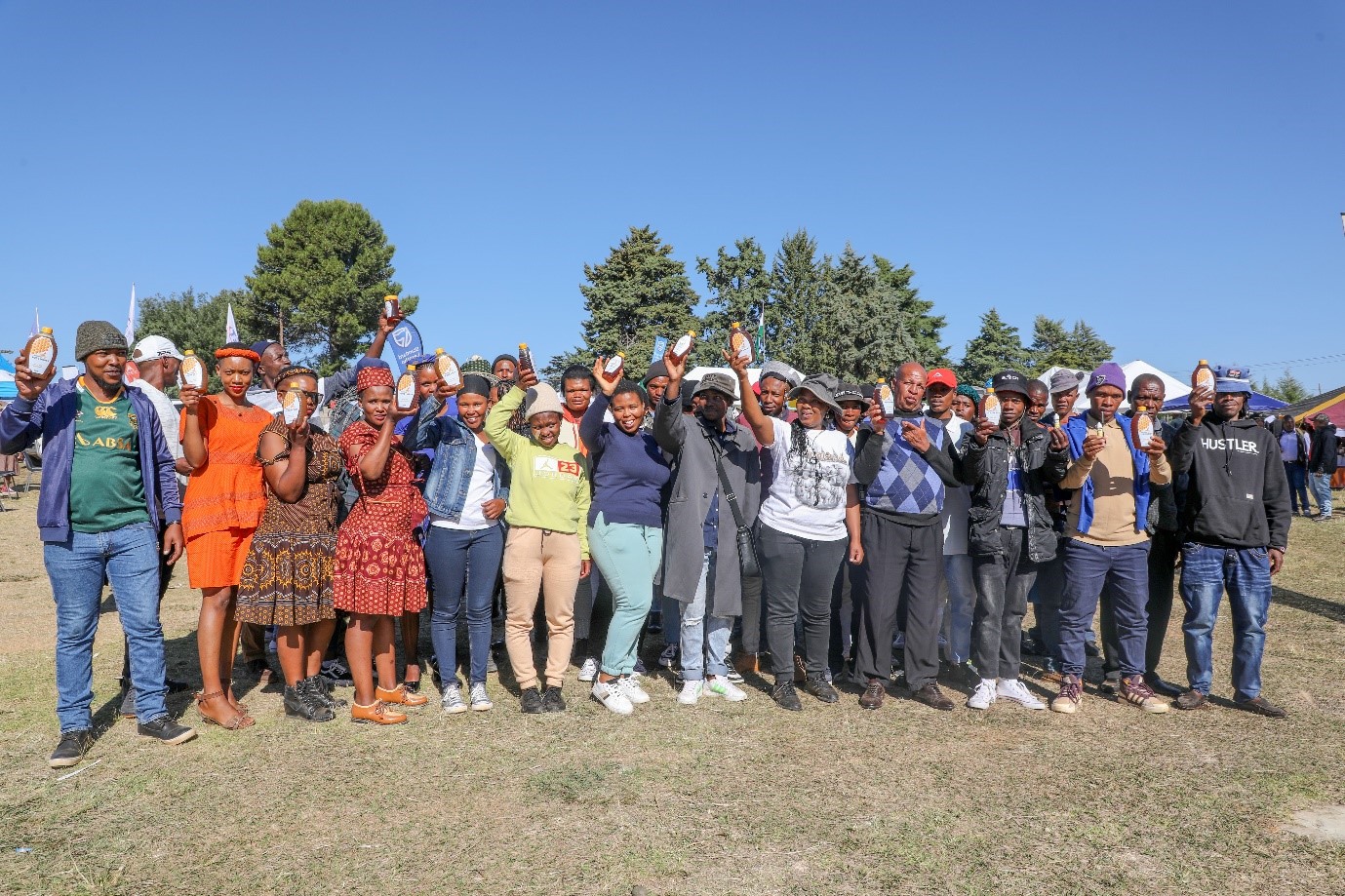Transforming Lives Through Beekeeping

By: Reentseng Phephetho, Communications & Digital Officer, Lesotho

The impact of extreme poverty on children’s development worldwide is devastating. Poverty has long-term consequences on children’s overall well-being, including poor physical and mental health, malnutrition, lack of education, social exclusion, as well as limited future employment opportunities. Economic hardships often lead to increased violence against children, including child labor and child marriage, as families struggle to make ends meet. Lesotho, with its current unemployment rates in rural areas like Leribe, has many parents and caregivers failing to make ends meet, causing children to further suffer.
In an effort to empower parents and caregivers in rural communities, for them to combat hunger and unemployment, World Vision Lesotho is taking steps to strengthen the ability of communities to work and provide for children. Through the Livelihoods & Resilience Technical Programme, World Vision this year trained 85 bee farmers in the Leribe district, equipping them with essential skills in commercial bee production. This initiative will benefit 85 households and approximately 130 children and will help to the community build sustainable livelihoods and resilient families.
‘Matomase Selo, one of the trained bee farmers, shared her experience: “We have always tried to produce some honey in the past year with no success, but after the training we received, we are able to produce in bulk and sell to feed our families.”

On 22 May, 2024 the Ministry of Environment & Forestry hosted an event in celebration of World Bee Day. The farmers showcased their honey production and made impressive sales at this successful event. The farmers report that they can now produce large quantities of high-quality honey and have gone further to diversify with products such as propolis, which are also generating good income.
Mr. Pobe Sebeko, another bee farmer, emphasized the profound impact beekeeping has had on their lives. “I never knew that a bee is this important and can actually change a person’s life. My children are now eating well, I can now afford to buy them clothes and pay their school fees from the sales I make each day. I cannot express how thankful I am to World Vision.”

World Vision’s efforts have brought changes to this group of farmers in the Leribe district. By providing bee production training, World Vision has helped transform the community, allowing families to achieve food security and improve their living conditions. And the best part is that this is a product easily accessible within their own community!